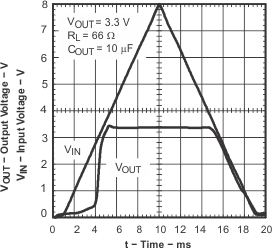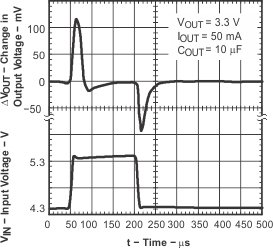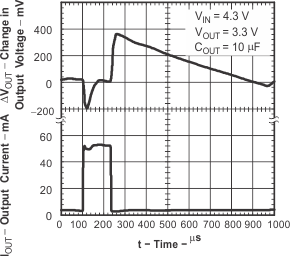SBVS116D December 2008 – November 2023 TPS714
PRODUCTION DATA
- 1
- 1 Features
- 2 Applications
- 3 Description
- 4 Pin Configuration and Functions
- 5 Specifications
- 6 Detailed Description
- 7 Application and Implementation
- 8 Device and Documentation Support
- 9 Revision History
- 10Mechanical, Packaging, and Orderable Information
Package Options
Refer to the PDF data sheet for device specific package drawings
Mechanical Data (Package|Pins)
- DCK|5
- DRV|6
Thermal pad, mechanical data (Package|Pins)
- DRV|6
Orderable Information
7.2.3 Application Curves
at operating temperature TJ = 25°C, VIN = VOUT(NOM) + 1.0 V or 2.5 V (whichever is greater), IOUT = 1 mA, CIN = 1 µF, and COUT = 1 µF (unless otherwise noted)







